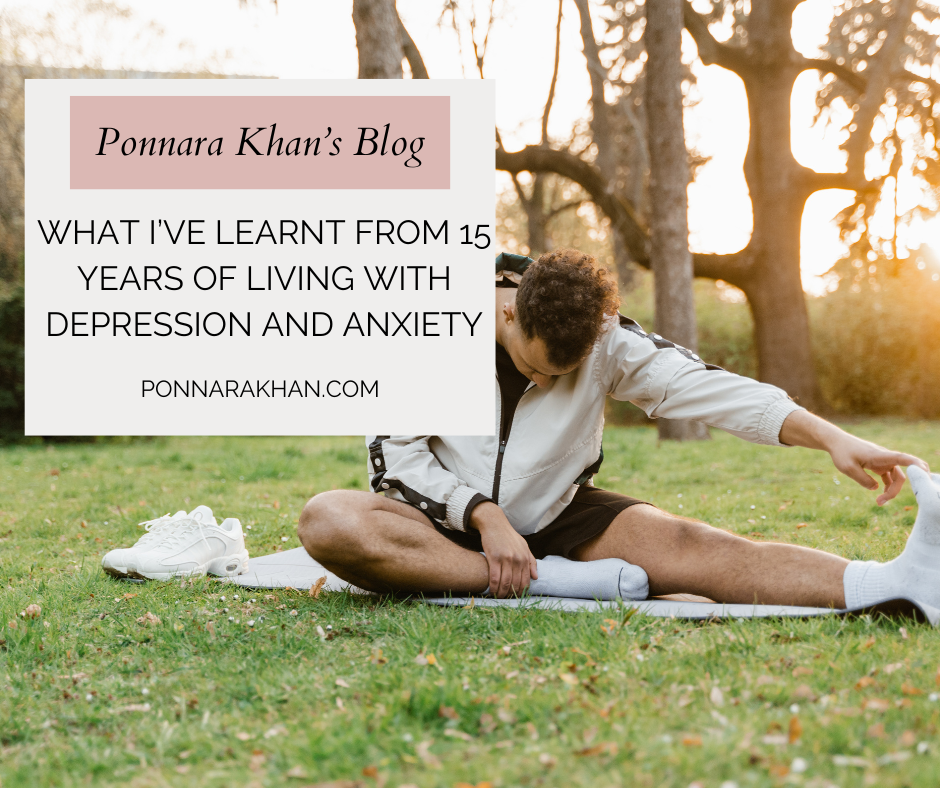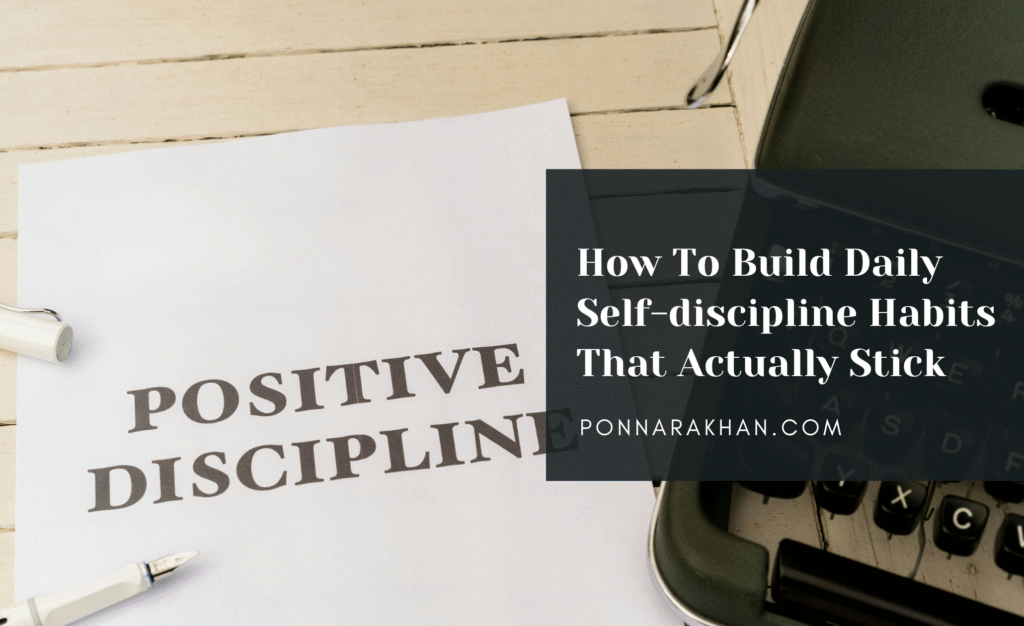Living with depression and anxiety is not easy. You have an internal fight every day. I have lived with it for the last 15 years. Until today, I still cannot say I am completely healed from it, but it’s okay.
I can deal with it and live a happy life just like a normal person. What I’ve learnt from this is something that may be difficult to write and share with the readers through this blog.
But I know that there are many people that are experiencing this like me. I hope what I’ve shared will serve as practical advice to resonate with the way you can live a better life while having anxiety and depression.
The Illusion of Depression and Anxiety Thoughts
The thinking pattern of people with depression and anxiety tends to quickly gravitate towards negativity faster than normal people. People without this illness have their thoughts overwhelmingly positive compared to those with it.
To deal with these negative thoughts, I always put myself to be aware of these negative thoughts and reframe them with the positive ones.
First you need to learn to detach yourself from these thoughts and say they are just the illusioned thoughts irrationally created by your depression and anxiety. If you take these negative thoughts as your own, it will worsen your depression and anxiety symptoms.
Just a mere doing of naming these illusioned thoughts will deprive them of their power to control you. With positive thoughts to reframe them, you will see another end of light of the situation that you are currently in.
Moreover, this practice will overtime train your subconscious mind from automatically or fast gravitation towards a negative perspective over the current situation to a positive one instead. Be careful. Your depression/anxiety speaks many lies to you.
The most common types of the illusioned thoughts of depression and anxiety thoughts you may identify include:
- Black & white thinking: thinking like “If I am not perfect, I am a complete failure.” Small mistakes feel like complete disasters.
- Catastrophizing: always assuming the worst will happen, turning small issues into imagined disasters.
- Mind reading: Assuming others are thinking negatively about you without any evidence.
- Fortune telling: Predicting the future negatively as if it’s fact, creating self-fulfilling prophecies.
- Disqualifying the positives: Discounting compliments or achievements. Only seeing what supports the negative view of oneself.
- Mental filtering: Focusing only on the negative and ignoring the positive. One bad moment outweighs all good experiences.
- Overgeneralization: Seeing a single negative event as part of an endless pattern.
- Emotional reasoning: Believing feelings are facts, even when they’re irrational.
- Should statements: Setting unrealistic standards and punishing oneself for not meeting them.
- Personalization and blame: Taking responsibility for things outside your control. Blaming oneself for outcomes that are complex or unrelated.
These thoughts distort reality and fuel a sense of helplessness, inadequacy, and fear. You must learn to identify them and ignore them right away as they occur.
Learn to Make Peace with The Past
Depression makes you feel resentful about the past. Again, this resentful feeling is another illusioned thought given by the depression. Normal people sometimes have resentful feelings too but they are able to move on to focus on their present faster and the resentment doesn’t stick on their mind for long. Their resilience is high.
However, if you practice dealing with this thought over time, your mind’s resilience will get stronger too. Learn to make peace with your past. Accept that no one is perfect. Humans are born to make mistakes and learn.
We are not born to be perfect. People with depression and anxiety tend to have an illusioned thought that they must be perfect. They seem to overestimate being a rightful person. Remember your quality is determined by your present, not your past.
A story of Buddha’s a personal assistant monk reflects that despite the enormous cruelty of killing thousands of people in the past, he was able to rebuild himself to be a rightful person again and his present quality, not past one, determines who he was. Meaningful life is found in your real life, not in a perfect life.
Create a Healthy Lifestyle and Stick to It
For people with depression and anxiety, a healthy lifestyle is very important in daily life because these habits help them gain positive emotions about their life. Personally, I have several healthy habits that I follow every day such as daily exercise, healthy diet, good sleep, and mindfulness practice.
You need to develop them as habits by integrating them into your actual life situations. The stressful feelings may cause you to consume more sugar than normal; hence, you must be aware of how you consume sugar. Certain foods may worsen your anxiety symptoms such as alcohol and coffee. Thus, you should avoid them.
For exercises, morning workout is super essential for improving your life as a depressed person. You can spend 15-30 minutes per day walking or jogging at the park to get refreshed and get yourself some vitamin D from the morning sunlight, which is very beneficial for reducing stress.
Some depressed persons may find it hard to fall asleep or have a good daily sleep but having a solid sleeping habit can help reduce your insomnia.
Lastly, learn to relax with sound meditation and focus on good mental habits; the habit of sharp focus, avoiding multi-tasking, ignoring your self-limiting belief. People with depression and anxiety tend to easily get distracted by external environments or their own thoughts.
The key is to ignore intrusive thoughts occurring in your brain. You can detach yourself from those thoughts. For example, a technique is to not judge them, think of them just like clouds and let them fly away without catching them or pay attention to them. Doing this will build yourself a sharp focus habit over time, which will reduce your depression and anxiety.
Depressed person tends to have very low concentration capability, sometimes due to external environment while sometimes due to their internal thoughts. Living with depression and anxiety means you must reinvigorate your capacity to concentrate on thing that you are doing.
Practicing this concentration boost your productivity and more importantly, sharp focus allows you to reprogram your subconscious mind to stop distracting your concentration, which helps heal your depression and anxiety.
With today technology, you are easily addicted to your smart phone and the bombardment of information available for you to absorb. So learn to attend to the information wisely. Avoid too much social media scrolling that creates more negativity in your life.
Sometimes, some people may think exercise is a burden. But when you have practiced exercising regularly, it will become a type of therapy for your depression and anxiety that you can’t miss. It becomes a way to refresh your mind very effectively.
Our body needs activity every day just like a monkey that jumps on trees to find fruit. Exercising benefits both physical and mental health.
Deep down for people with depression and anxiety, exercising helps produce neurotransmitters in the brain that supports mental well-being, including dopamine (motivation, reward, pleasure, focus), serotonin (mood regulation, sleep, appetite, emotional well-being), endorphins (natural painkillers, feelings of euphoria), Norepinephrine (alertness, arousal, attention, stress response), glutamate (improve learning and memory), GABA (calms the nervous system), and BDNF (supports growth and survival of neurons).
Even on a very hectic day, I still take at least 15-30 minutes per day doing exercise. The type of exercise best for depression and anxiety is the cardiovascular exercise, the one that produces immense sweat.
Meditation is an effective way to deal with depression and anxiety. It is recommended by all psychological therapists. I practice meditation 2 times per day, in the morning and in the evening before bed.
In the morning, I usually meditate after jogging and shower. Meditation lets you understand how your mind works and improves your capability to control your emotion. While some may think meditation is boring, but after regular practice, they will realize its benefit and power.
You understand your mind more deeply. It doesn’t have to take a long time for a session of meditation to see its benefit. For me, I do 10 minutes each. So for a day, I meditate 20 minutes. If you have depression or anxiety without meditation yet, you miss an important healing practice.
During meditation, you just keep your mind calm and static without thinking. Observe your emotion and let it flow. Just observe while focus on your breath.
Medication and Brain Supplement
That’s not uncommon for depressed and anxiety people taking daily medication, especially at night before sleeping. I also do it. Medication might help reduce your symptoms but it also creates certain side effects.
Depending on the level of your illness, if you can use an alternative therapy, medication should be avoided. If you cannot control your symptom by your own, don’t be afraid of taking medication. Usually, medication on mental issues has low negative impact on your physical health as long as you maintain healthy living habits such as good diet, good sleep and daily exercise.
The depression and anxiety that causes insomnia usually necessitates medication because if you cannot sleep well at night, it will worsen the symptoms. However, medication alone cannot guarantee that you will sleep well every night. It still depends on how you manage your emotion and thinking as well.
For example, if you do not relax your brain from overthinking at night, you will still experience days of bad sleeps. The quality of sleep matters a lot for depression and anxiety. However, if you didn’t have a good sleep last night, don’t regret or catastrophize it by negative thoughts. Keep your mood high and forget your last night.
Certain brain supplement can help your brain reduce stress and improve your mood. I have tried some and can give some recommendation. In addition to sedative antidepressant you take at night to get you to sleep, you can also use non-drowsy supplements during the day to help improve your mood, reduce stress, and improve your concentration at work.
Those non-drowsy formula does not cause sleepiness. However, based on my personal experience, you should also be careful about its side effects on your body organs such as digestion system, liver, etc. Make sure it is made from pure natural ingredients.
For me, I don’t take it regularly every day but I take only when I feel stress from work. I use a supplement product by Shaklee called Shaklee Stress Relief Complex. Whenever I feel too stressed at work, I usually take a capsule. In 20-30 minutes, it makes me feel better.
While brain supplements can help you reduce depression and anxiety, you need to be careful on how it affects your physical health and if necessary, you should consult your medical professional.
Life Fulfillment and Success
Do not let your depression and anxiety drag your life down; it’s worthless and it wastes your time a lot. If you experience depression and anxiety, please remember that you are not alone.
People are living with it. It’s time for you to transform your life from a negative into a positive one again. You might be going through hardship at the moment but if you don’t manage your depression and anxiety well, it will dramatically reduce the quality of your life, impacting both your personal and career success.
First, you must eliminate the self-limiting belief produced by depression and anxiety. Depression and anxiety can harm your life in a serious way without your notice. As a practical advice, having a solid life purpose and strong pursuance towards your life goal can get you out of depression. You have the strength to push forwards despite obstacles. This willpower can overcome the unnecessary noise in your mind.
Sometimes, some fall into depression due to the lack of life purpose. You must find out about yourself on what you want from life. That’s the mission. Moreover, depression might get you stuck in life due to your low self-confidence. You find it hard to get yourself out of your comfort zone.
However, all these illusions will destroy your life if you don’t take action to control it. In fact, overcoming all of these negative qualities will get your life somewhere and most importantly, it is the way to heal yourself from depression and anxiety as well.
My advice is that you should not aim for many goals. Depressed people are easily distracted, not just their emotion and concentration, but also their life purpose. They tend to easily quit when they encounter early shortcomings. Continuing to abandon your life goals easily will get you behind in life.
Most importantly, it wastes your time, which is a limited resource. So go ahead and narrow down your focus and get your life going with purpose again like you were before you have depression. That’s the way to heal it.
Final Thought
Based on my years of experience in living with depression and anxiety, I must say that people who start to encounter some sort of depression and anxiety symptoms early seem to misunderstand the nature of this disease and often make it worse.
I would say if I were able to go back before my depression and anxiety occurred to me, I would have treated it with the right approach, so as to stop it at the first place. As a key advice to those without this illness just yet, never let your sadness or sorrow overextend too long.
Learn to bounce back from all the issues you experience in life as fast as you can. Life is meant to walk forwards leaving behind problems that may or may have been solved by you. But it’s completely ok. Zoom out.
For those with depression and anxiety already, rest assured that this can be dealt with. This can be cured. It’s time for you to refocus yourself radically on self-care both mentally and physically. Never overcomplicate it further by the feelings of remorse, sorrow or fear. It is the way to heal it.
Depression and anxiety is meant for you to manage it, not fighting it. It’s not your enemy. It’s someone you need to control well by yourself. When you are able to manage it 100%, it will no longer be an issue; it would become just noise for you to ignore.

I’m Cambodian, and I enjoy sharing my thoughts and experiences here on this blog. I love writing about my life journey and the lessons I learn along the way. I’m especially passionate about topics like self-improvement, motivation, and developing a success-driven mindset.
You’ll also find helpful articles where I explore different ways to build an online business — including blogging, digital marketing, affiliate marketing, and financial trading.



Living with depression and anxiety is a daily battle, but it’s possible to find ways to cope and lead a fulfilling life. Recognizing and reframing negative thoughts is a powerful tool to regain control. It’s important to remember that these thoughts are not a true reflection of reality but rather distortions created by the illness. Over time, practicing positivity can rewire your mind to focus on the brighter side of situations. How can we better support those around us who are silently struggling with these challenges? Recently, I came across a program for GPT-generated text (генерация текста) in Russian. The cool part is that it runs locally on your own computer, and the output is actually unique and quite decent. By the way, I hope the content on your site isn’t AI-generated?
Thanks for reading my article. I don’t use AI to write for me. I may use it to get ideas.